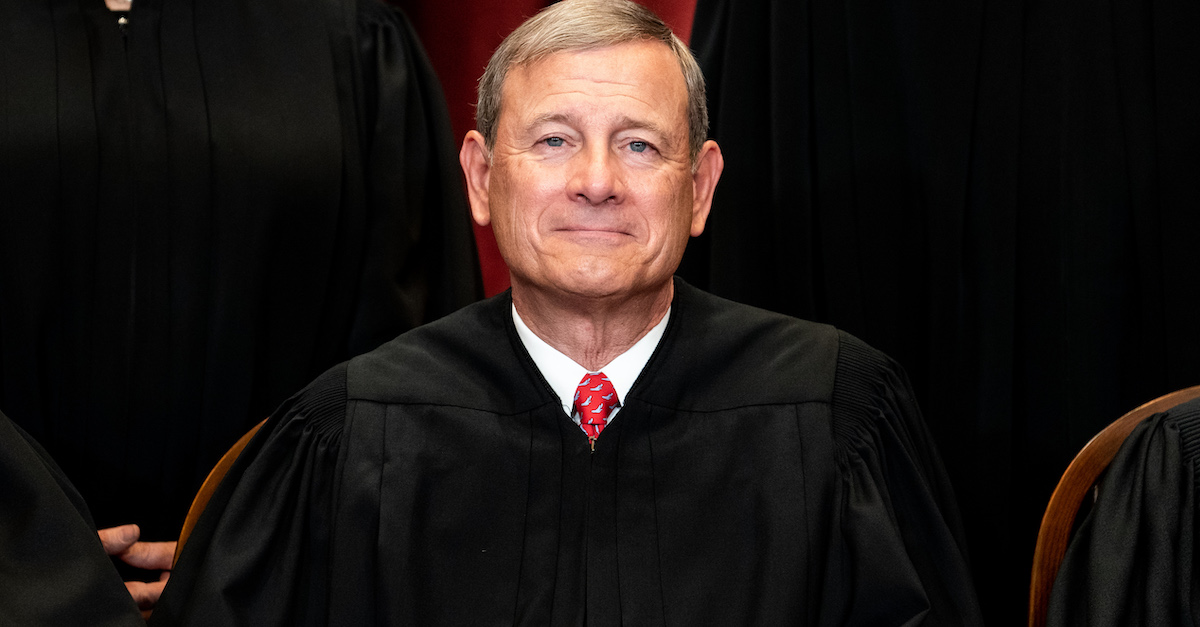
The Supreme Court unanimously ruled on Thursday that Philadelphia’s attempt to force a Catholic group to certify same-sex couples as foster parents violates the free exercise clause of the First Amendment, but the decision was narrow enough to evoke sighs of relief from LGBTQ advocates who argued the high court did not create a license to discriminate.
“The City’s actions burdened [Catholic Social Service]’s religious exercise by forcing it either to curtail its mission or to certify same-sex couples as foster parents in violation of its religious beliefs,” a summary of the court’s ruling states.
When the high court agreed to hear the case of Fulton v. Philadelphia in February 2020, court-watchers immediately recognized its importance in a case pitting LGBTQ rights against religious liberty in a 6-3 conservative court. The anticipated political fault lines were notably absent on Thursday in a ruling written by Chief Justice John Roberts and rife with concurring opinions—but no dissents.
“Government fails to act neutrally when it proceeds in a manner intolerant of religious beliefs or restricts practices because of their religious nature,” Roberts wrote, citing the Supreme Court’s holding in Masterpiece Cakeshop in 2018.
In Masterpiece Cakeshop, the high court similarly adopted a narrow ruling allowing most of the court’s left-leaning flank to join the majority in a 7-2 decision. That case went to the Supreme Court after the Colorado Civil Rights Commission found that a Colorado shop violated anti-discrimination law by refusing to bake a wedding cake for a same-sex couple.
Instead of ruling on broader issues of anti-discrimination laws, free exercise of religion, and freedom of speech, the Supreme Court’s majority found in that case that the Commission did not apply religious neutrality to the shop.
Some legal analysts saw a similar compromise at play in Fulton, with Justices Stephen Breyer, Sonia Sotomayor, and Elena Kagan joining forces with Roberts, Brett Kavanaugh and Amy Coney Barrett to avert a far broader ruling that would strip LGBTQ rights in favor of a right-leaning interpretation of religious liberty.
“The three liberals (Breyer, Kagan and Sotomayor) found allies in Roberts, Kavanaugh and Barrett to keep Employment Division v. Smith from being wiped off the books and to give Catholic social services a very narrow (and perhaps ephemeral) win,” Bard Early College professor and The Economist‘s Supreme Court correspondent Steven Mazie tweeted.
Justices Samuel Alito, Clarence Thomas and Neil Gorsuch made clear in a concurring opinion that they would have preferred a more sweeping ruling that would have stricken Employment Division v. Smith, which upheld a prohibition on sacramental peyote use over religious liberty objections.
Smith established the principle that states are not required to accommodate otherwise illegal actions in the name of religious freedom.
“Even if a rule serves no important purpose and has a devastating effect on religious freedom, the Constitution, according to Smith, provides no protection,” Alito wrote in an often-strident concurrence, which spans more than five times the length of the lead opinion at 77 pages.
Rejecting that view, Justice Barrett wrote in a concurring opinion that she sees “no reason to decide in this case whether Smith should be overruled, much less what should replace it.”
The lead Roberts opinion also spurns the invitation to overrule Smith, ruling in the Catholic group’s favor on other grounds.
“As Philadelphia acknowledges, [Catholic Social Service] has ‘long been a point of light in the City’s foster-care system,'” the lead opinion states. “[Catholic Social Service] seeks only an accommodation that will allow it to continue serving the children of Philadelphia in a manner consistent with its religious beliefs; it does not seek to impose those beliefs on anyone else. The refusal of Philadelphia to contract with CSS for the provision of foster care services unless it agrees to certify same-sex couples as foster parents cannot survive strict scrutiny, and violates the First Amendment.'”
The American Civil Liberties Union made clear they believed the reach of the ruling was limited.
“We are relieved that the court did not recognize a license to discriminate based on religious beliefs,” Leslie Cooper, the deputy director of the group’s LGBTQ & HIV Project, wrote in a statement. “Opponents of LGBTQ equality have been seeking to undo hard-won non-discrimination protections by asking the court to establish a constitutional right to opt out of such laws when discrimination is motivated by religious beliefs. This is the second time in four years that the court has declined to do so. This is good news for LGBTQ people and for everyone who depends on the protections of non-discrimination laws.”
At its core, the Fulton opinion found that Philadelphia’s refusal to contract with the Catholic group could not stand because the city had a mechanism for individualized exemptions—which it did not extend to CSS.
“Where such a system of individual exemptions exists, the government may not refuse to extend that system to cases of religious hardship without a compelling reason,” the summary of the court’s ruling states.
As the ACLU noted, that means the court’s holding will not affect any foster care programs that do not have the same system for individualized exemptions.
“This is good news for the more than 400,000 children in foster care across the country, who are the ones who get hurt the most if placement decisions are made based on an agency’s religious beliefs rather than the child’s best interest,” Cooper said.
Stephanie Haynes, the executive director of Philadelphia Family Pride, sounded a similar note.
“We are relieved that this decision only applies to this specific contract, and hopeful that Philadelphia will be able to address the constitutional concerns the court identified,” Haynes wrote in a statement. “LGBTQ people are just as qualified to be foster parents as anyone else. There is no reason our families should be turned away from fostering children. In states across the country, many children spend years in a group home before being placed with a foster family, if ever.”
Read the ruling below:
[Image of Chief Justice Roberts by Erin Schaff-Pool/Getty Images)